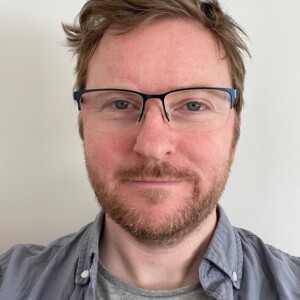
Geoffrey Saville
Loughborough University
Project
Multi-hazard impacts into holistic risk management and industry regulation on climate risk
Supervisors
- John Hillier
- Rob Wilby
- Savannah Cox
PhD Summary
Taking action to make societies resilient to extremes in a changing climate is a great challenge of our time. Knowledge is required about both the changes in hazard and resultant modified risks to inform policy and practice in risk management. Insurance has a major role to play, but how environmental science underpins, and is influenced by, insurance is insufficiently understood.
This PhD focuses on compounding, multi-hazard risks to gain insights able to transform the finance sector (FS). UKRI/NERC initiatives recognise that risk is likely exacerbated by jointly occurring extreme weather events. Rarely is this accounted for in FS, and compounding hazards typically remain poorly understood for both current and future climates. This exposes FS actors to compound hazards, and leaves a diverse stakeholder group with unquantified multi-hazard risk impacts.
This PhD will:
- Analyse the co-occurrence of severe tropical cyclones (TCs) and extreme heat, two of the deadliest climate hazards, both influenced by climate change. Infrastructure failures following recent major TCs increase the impact of heat events in cyclone-prone regions.
An analysis of materials risks to industry and society will be conducted to highlight a second pairing of hazard to investigate in terms of their co-occurring impacts.
- Conduct a social science study on the integration of windstorm clustering into insurance practices. By understanding the insurance data infrastructures that underpin scientific innovation, a better understanding is gained about the co-evolution of environmental science, industry, and regulatory actors. Using this historical example of scientific integration as a template, an exploration of how climate science applications develop in and effective and appropriate way, to help the deployment of new multi-hazard analytics in a context of global environmental change.
- Create a framework to compare new climate risk analytical tools and enable appropriate representation of climate risks via projected scenarios from the macroeconomic to company-scale impacts on assets and liabilities.
Through the doctoral researcher working in the insurance industry, this part-time (0.5 FTE) co-designed project offers unbeatable access to the insurance sector. His meteorological background, and ongoing responsibilities to oversee research and development project across all hazards, facilitates an ambitious project spanning novel atmospheric science and the study of its applications. Such truly integrated studies are rare and will make a valuable contribution in the understanding of multi-hazard impacts, the role of the insurance industry and how to best utilise latest scientific understanding to encourage financial resilience.
Previous activity
My undergraduate degree was in Environmental Science at UEA, followed about 15 years later by a Masters in Climate Change at UCL. In between, I worked in a number of roles for the UK Met Office, including various forecasting positions and business consultant. I also spent 3 years living and working as a meteorologist in Bermuda based at the airport. Having always been interested in extreme weather, I found a career change opportunity and shifted to work in the finance industry managing research projects for WTW’s Research Network, and more recently for a specialty insurer/reinsurer called Canopius. I am also a director (with my brother) of a small production company called Wild Indie Ltd, which specialises in science education and short film currently.
Why did you choose doctoral research?
I have always been interested in better integrating latest science into practical applications. I never expected to join the insurance industry, but looking back it makes perfect sense given my interests in extreme weather and natural catastrophes, as well as desire to make use of latest scientific and technological advances. Having gravitated towards roles focussed on science and innovation, I always respected the contribution of the academic community and have held a long time ambition to take my studies to the highest level by undertaking a PhD. I didn’t have the opportunities when I was younger, but now, while lucky to have a broad career, I would like to deepen my connections to academia and make my own contributions to an area of risk management that needs further attention.
Why did you choose CENTA?
The integrated nature of the CENTA themes lends itself to my research projects, and by marrying together my background in physical sciences with an analysis of how organisations can better identify and use new advances. I feel that my research fits very well with the goals of CENTA. The opportunity to work with the respected academics on my supervisory team at Loughborough University is also one the key reasons that CENTA was a good choice for me.
Future plans
The study will enable me to have a deeper connection to the academic community and better understand the publication process to help support and conduct future research relevant to the risk management and insurance industries. It will advance our understanding of how applications can be developed and integrated in the financial system and address connected risks that may be underrepresented in the business planning and internal financial modelling of companies, creating a more sustainable and resilient system of financing. It will hopefully push forward the baseline understanding of the impacts of climate change on extreme events, especially those that are correlated or connected, and how impacts can be better assessments and mitigated to support financing of business and projects across all industries. For me personally, this will help my career have impact and change the industry for the better, as well as provide more insight and capability in my capacity of bringing new science through to practical application.
